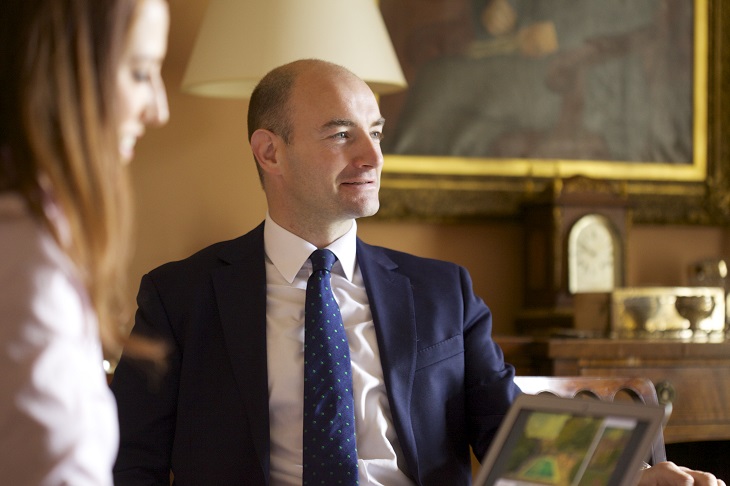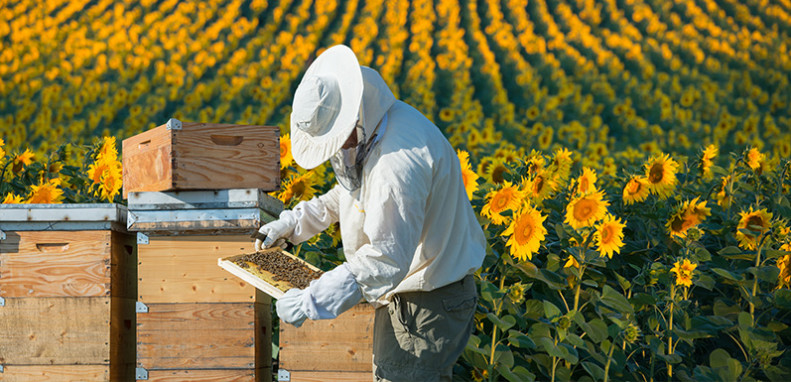Keeping bees has positive ecological consequences, according to the British Beekeepers Association which runs bee-keeping courses and provides information. Strong and healthy bee colonies play a significant role in the pollination of important crops and flowers – not just farm crops but domestic flowers and plants such as tomatoes too. Not just that, but bee-keepers can produce their own honey and beeswax, and bees cost very little to keep.
 Middleton’s very own Ben Horne has been keeping bees in a paddock on the edge of a village near Andover since 2015. He currently has around 120,000 bees. “They just need a bit of space and access to flowers for pollen and water. It’s very low maintenance. You can leave them to it and check on them once a week.”
Middleton’s very own Ben Horne has been keeping bees in a paddock on the edge of a village near Andover since 2015. He currently has around 120,000 bees. “They just need a bit of space and access to flowers for pollen and water. It’s very low maintenance. You can leave them to it and check on them once a week.”
The ideal property for bees has a cottage garden and some surrounding fields, says Country Life. However, you don’t necessarily have to be out have a home in the countryside to keep bees. If you’re living in a town or city, a garden or even a rooftop can suffice (though you’re advised to have a good-sized fence so the bees don’t head over into your neighbour’s garden at low level).




